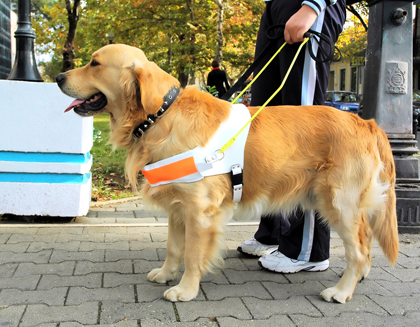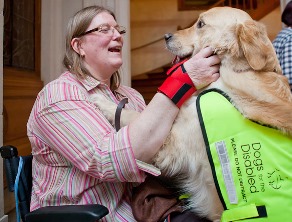
Companion Animals
Social Impact and Education
Pets are part of people’s lives. Companion animals bring joy to their owners. They provide emotional support, reduce feelings of stress and loneliness, and increase social contact. Looking after pets helps children and adults alike to learn to be responsible, develop good self-esteem and helps positive emotional development. As well as bringing a range of benefits to their carers, pets provide various social and economic benefits in general, helping to create a more sustainable society.
Below are just some of the benefits associated with pets, but in order to maintain these benefits pet owners need to act in a sustainable manner when caring for their animal or deciding to adopt an animal. This includes taking care of their health, nutrition and exercise and considering neutering/spaying to keep reproduction under control. Visit the Tips and advice page to learn about how we can care for our pets.
Pets and the elderly
Studies have shown the benefits of pets for the elderly: bringing companionship, encouraging activity, creating a sense of responsibility of care for another being and helping to alleviate loneliness and lower blood pressure. Older people having pets are also reported to require fewer visits to the doctor. Therapy pets are reported as having positive effects on people’s quality of life in nursing homes, hospitals, and care centres for the disabled making them more sociable and encouraging interaction and activity.
The benefits of pets
Social
- Pets can help children learn to be responsible and have a sense of caring.
- Therapy pets are reported as having positive effects on people’s quality of life in nursing homes, hospitals, and care centres for the disabled making them more sociable and encouraging interaction and activity.
- Rescue dogs are trained to perform a number of highly specialised tasks such as searching for survivors and victims in disasters, e.g. earthquakes, tsunamis, fires, avalanches etc. Additionally, these dogs are important to firemen and policemen in the rescuing of survivors and tracking missing people. Every year rescue dogs save thousands of human lives across the world.
- Medical alert and assistance dogs assist people with serious illnesses, alerting them to an impending fit/hypo or helping with everyday tasks.
Economic
- Dog owners are physically more active, have lower blood pressure and cholesterol levels which helps ease the strain on healthcare resources.
- Studies have shown the benefits of pets for the elderly: bringing companionship, encouraging activity, creating a sense of responsibility of care for another being and helping to alleviate loneliness and lower blood pressure. Older people having pets are reported to require fewer visits to the doctor, again with a consequent benefit to public health services.
- Trained assistance dogs help physically impaired people (e.g. the disabled, blind and deaf) as well as autistic children to gain more freedom and independence. These animals can help with a number of daily tasks such as opening and closing doors, helping people undress, and even emptying the washing machine. Additionally, they can assist daily physiotherapy routines and also help autistic children in becoming calmer. This means more independence for those with disabilities and fewer resources needed from care providers.
- Research has demonstrated the positive impact pets have on both the mental and physical health of people with whom they have contact meaning pet owners can contribute positively to sustained productivity and competitiveness in the workplace.
- People with medical alert and assistance animals can avoid situations such as hypoglycaemic episodes where medical attention is needed, meaning less of a strain on A&E and ambulance services, which overall benefits public health systems.
Useful Links
Educational resources
- We Care presentation - English version - French version
- IFAW: educational materials on dags and cats
- FEDIAF: educational materials on dogs and cats
- Pet Education Resources: materials from UK-based organisations (Blue Cross, PDSA, PFMA, etc.)
- Guide Dogs for the Blind: teaching materials on guide dogs
- GARC: teaching materials on rabies
CSR resources
- http://habricentral.org/
- http://www.iahaio.org/
- http://www.ethologia.be/
- http://www.petsastherapy.org/




